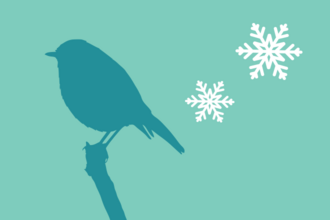Rather than darting around in your house, most spiders that actually survive the winter choose to shelter outdoors instead.
They'll look for a quiet spot in an outbuilding – or a natural shelter such as under logs or stones, in leaf litter or hollow plant stems – where they're not going to be disturbed by you.
This is one reason why it's really important that we don't tidy up too much in the garden, because this can deprive those spiders of cosy spots to see out the cold weather.




